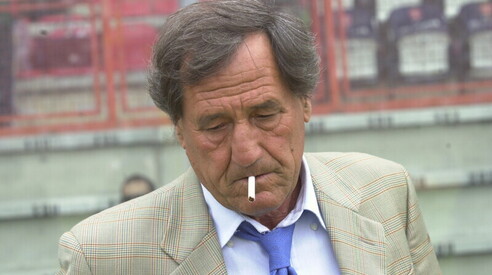Giovanni Galeone has died


Giovanni Galeone (photo LaPresse)
1941-2025
For over thirty years he has brought that universalist way of playing, a bit Mediterranean and a bit Central European, around the Italian football province, making the fans fall in love with him more than the presidents.
Italian football is a complex field, often pitted against coaches who are disliked by most and successful, and coaches who are likable by most and losers, or rather, non-successful. The Italian nature, at least among football fans, rarely combines shared sympathy with victories, because those who win somehow attract the antipathy of all those who cannot rejoice in victories on the pitch.
Among the likeable non-winners, Giovanni Galeone found a home for a long time. Because Giovanni Galeone was a strange coach, at times bizarre in his conception of football and his ways, driven by a prickly sincerity and an even more prickly loyalty to his own beliefs (and not only) in football .
Giovanni Galeone wandered for thirty years in the footballing provinces, the ones that never win, accumulating spectacular promotions, a few incredible saves, sackings, and crazed interviews, always remaining faithful to a fun, brash style of football, driven by an essential teorem: a match is won by scoring more goals than your opponent. Giovanni Galeone's teams always attacked, always tried to win, and focused on scoring, not preventing.
Someone like that couldn't help but be liked. Also because when he spoke, he was able to convince you that this was the only way football could be beautiful, transformed into a spectacle. Perhaps this is also why , upon hearing the news of his death on Sunday, November 2nd, a sincere and melancholic sense of loss was felt, at least among those who had the opportunity to follow even a small part of his footballing journey .
Giovanni Galeone had a gift for the gab and a sharp mind. His mouth and head were trained by good books, by a curiosity about all things human, not just football. He was a man out of his time, and for this very reason, he was very modern. A man fit for the decades leading up to the First World War, capable of uniting Mediterranean and Central European culture like few others, perhaps no one in the world of football.
Giovanni Galeone was a son of bourgeois and cultured Naples, which also knew how to become a son of Trieste, which in the 1950s began to overcome the imperial memory to embrace a particular Italianness, still animated by a push towards Central Europe.
Giovanni Galeone preserved this drive in his readings, in his words, and above all, he drew it on the football fields once he abandoned his football career and began his coaching career. Because between the 1970s and 1980s, no team played like Giovanni Galeone's, because no coach in those years had brought beyond the Iron Curtain what was happening in the stadiums of the communist bloc. Giovanni Galeone watched those games on Rete Capo d'Istria, and those matches "stimulated my curiosity, instilled in me a universalist mindset, the one that later formed the basis of Danubian football, that of Greater Austria and Greater Hungary."
For thirty years, Giovanni Galeone continued to spread that universalist style of play throughout the Italian provinces. With mixed success, he captivated the fans more than the club's presidents, encountering many disappointments on the field and much satisfaction off it. Because wherever he returned, Giovanni Galeone was greeted with an unusual affection, far more intense than anyone could have imagined. An affection that lasted beyond the natural footballing expiration date.
More on these topics:
ilmanifesto


